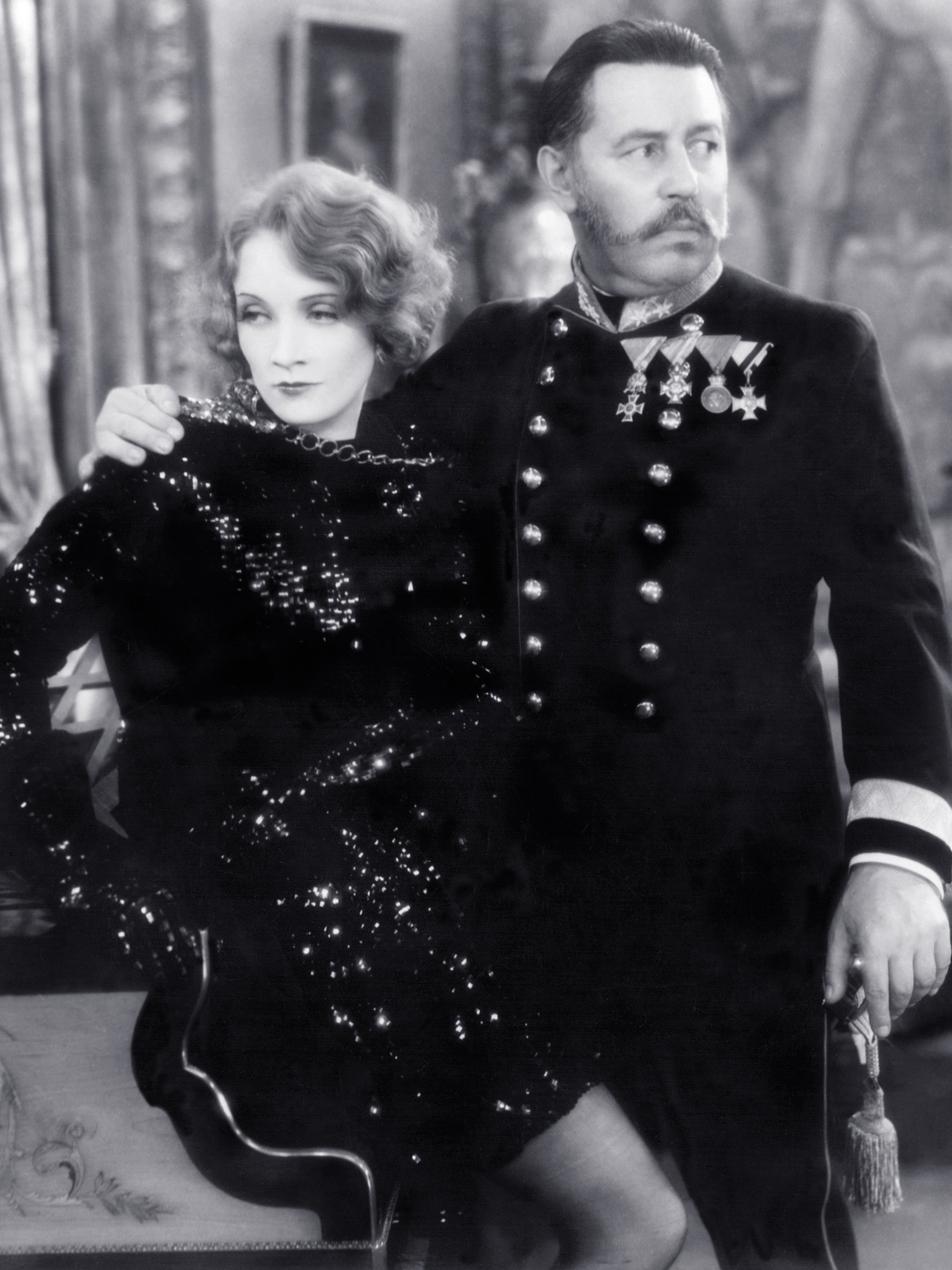
DISHONORED
(director/writer: Josef von Sternberg; screenwriter: Daniel Nathan Rubin; cinematographer: Lee Garmes; editor: Josef von Sternberg; music: Karl Hajos/Herman Hand; cast: Marlene Dietrich (Marie Kolverer/X-27), Victor McLaglen (Colonel Kranau), Gustav von Seyffertitz (Austrian Secret Service Chief), Warner Oland (Colonel von Hindau), Lew Cody (Colonel Kovrin), Barry Norton (Young Lieutenant); Runtime: 91; MPAA Rating: NR; Paramount; 1931)
“Entertaining melodrama that promotes glamour over telling a realistic spy tale.”
Reviewed by Dennis Schwartz
Josef von Sternberg (“Morocco”/”Thunderbolt”/”The Blue Angel”) is director and cowriter with Daniel Nathan Rubin of this badly outdated and outrageous star performance spy film, that serves well as an early example of camp and succeeds as an entertaining melodrama that promotes glamor over telling a realistic spy tale. It remains fascinating to watch Marlene Dietrich show off her sex appeal in such a hokey production that nevertheless promotes the director’s concerns for art for art’s sake.
Marlene Dietrich plays the widow of an army officer who in 1915, during WW I, is a Viennese street prostitute when she’s recruited to become a spy and is given the code name X-27 by the head of the Austrian Secret Service (Gustav von Seyffertitz) because he heard her utter, to a cop who ordered her to move on, “I’m not afraid of life or death!” and then after testing her found her to be loyal to her country. After telling her to use her feminine assets to trap her army officer victims, her first assignment is to gather evidence against a clever Austrian colonel (Warner Oland), a member of the army’s chief of staff, suspected of selling war information to the Russians to maintain his high-style of living but who has never been caught red-handed. After meeting him at a masked ball, she’s invited to his apartment and discovers in his cigarette a secret message from the Russians. Caught with the goods, the spy confesses he’s a traitor and commits suicide. Her next assignment is tracking down the crippled agent disguised as a clown at the ball who passed the note to the colonel. She tracks him down in a casino, where he poses as an aviator and when he sneaks into her apartment later that night for a surprise visit she learns only that the brash hunk (being crippled was only a disguise) is known as H-14 (Victor McLaglen). But he escapes before arrested, and her next order is to get into Russian headquarters at Borislav, near the Polish border, where she disguises herself as a peasant maid to get war info. After getting an unsuspecting adjutant colonel (Lew Cody) drunk, she obtains the war plans for Russia’s invasion of Poland and plans to smuggle it out in a musical code. Only before she can escape, she’s tripped up by her pussy, her pet black cat, who Colonel Kranau, the H-14 spy’s real identity, and the one in charge of headquarters, recognizes on the premises and arrests her. The two master spies make love that night and in the dawn, before her execution, she drugs his wine and escapes. The lovers will meet later when H-14 is arrested in Austria. After receiving permission to question the uncooperative spy, she helps him escape. For that treasonous act she is sentenced to face the firing squad and requests that she be dressed in her street-walking attire when executed. In the risible memorable concluding scene X-27 requests a looking glass, which turns out to be the soldier’s saber, to retouch her makeup before facing the firing squad—which evidently reminds her of getting ready for her next john. Incidentally, while Marlene is put away for her sins her cat is taken in by the protective church.
This minor entry in the Dietrich-von Sternberg canon is stylish, absurd, amusing and shows the director’s fetish to make Marlene into a sex symbol and to equate spies with whores who can be valued for their smarts and resourcefulness to survive but are always outsiders. The iconic Marlene plays this role as she tried to play all her other roles, as a come-on to the audience. Also the title makes little sense, as von Sternberg said in an interview objecting to the studio given title: “she was executed, not dishonored.”
REVIEWED ON 1/11/2008 GRADE: B